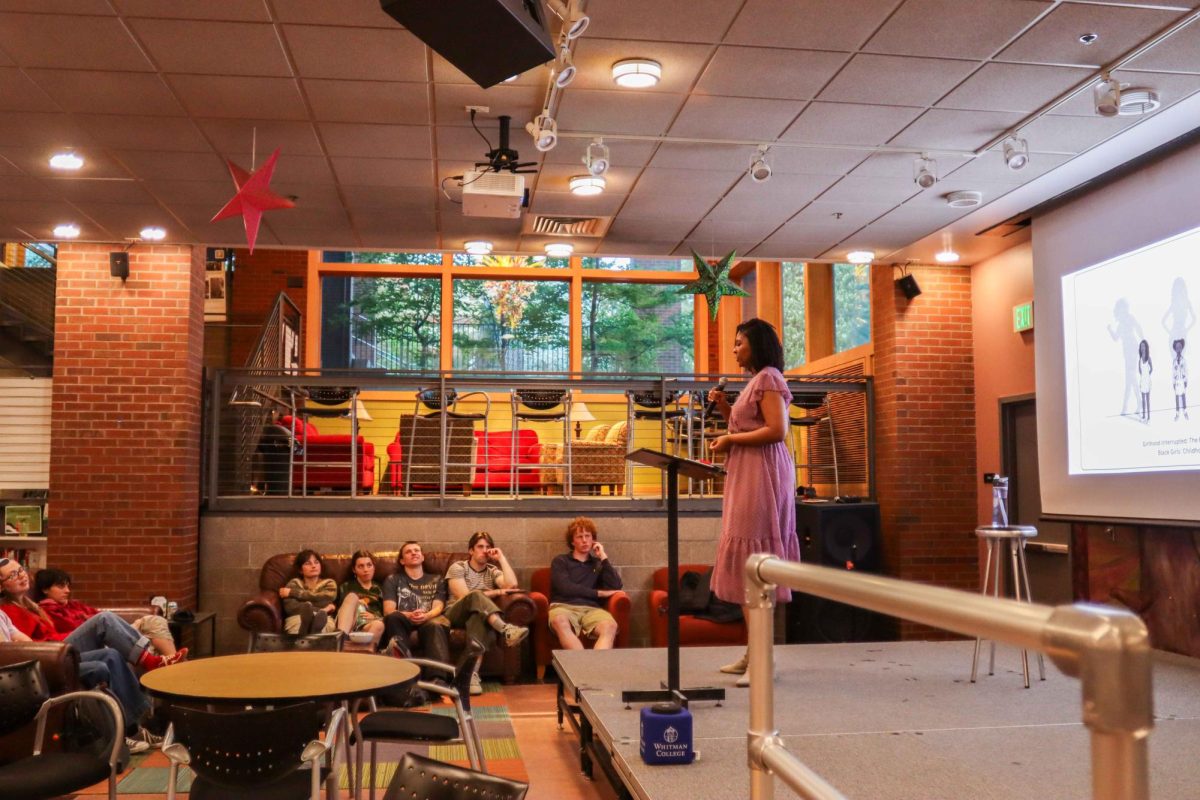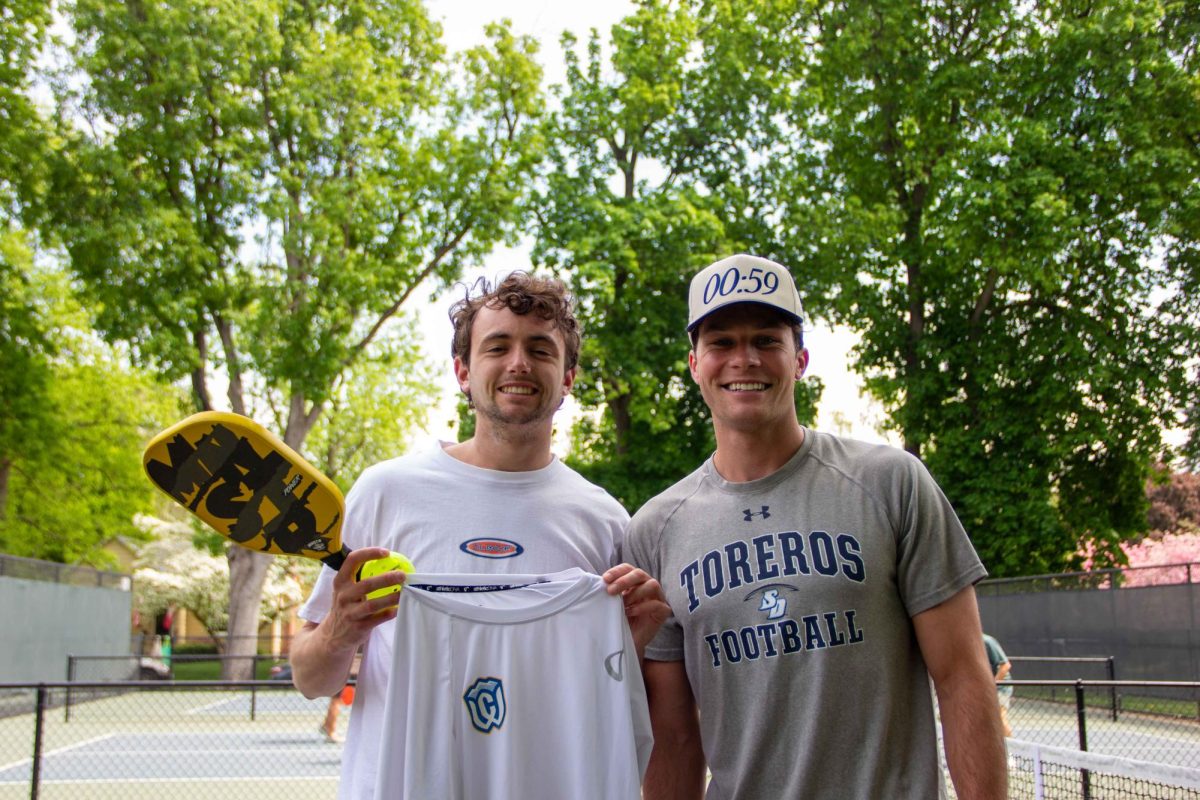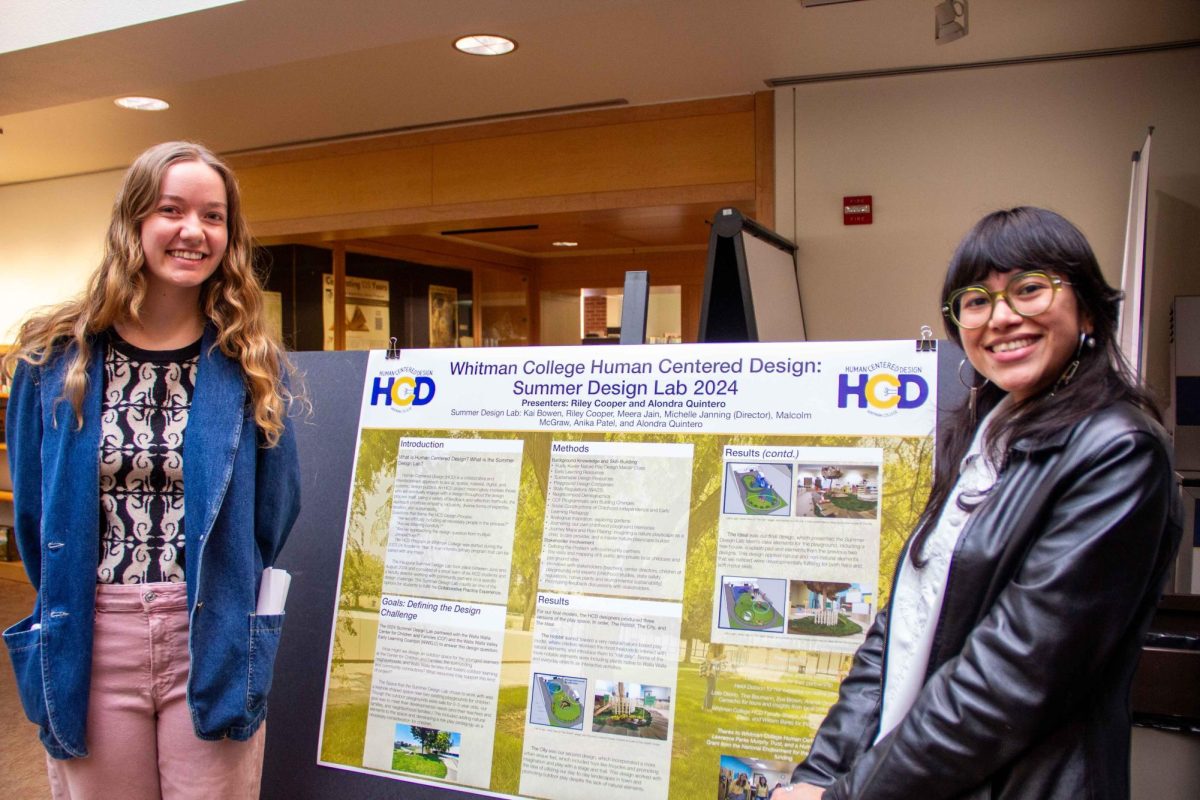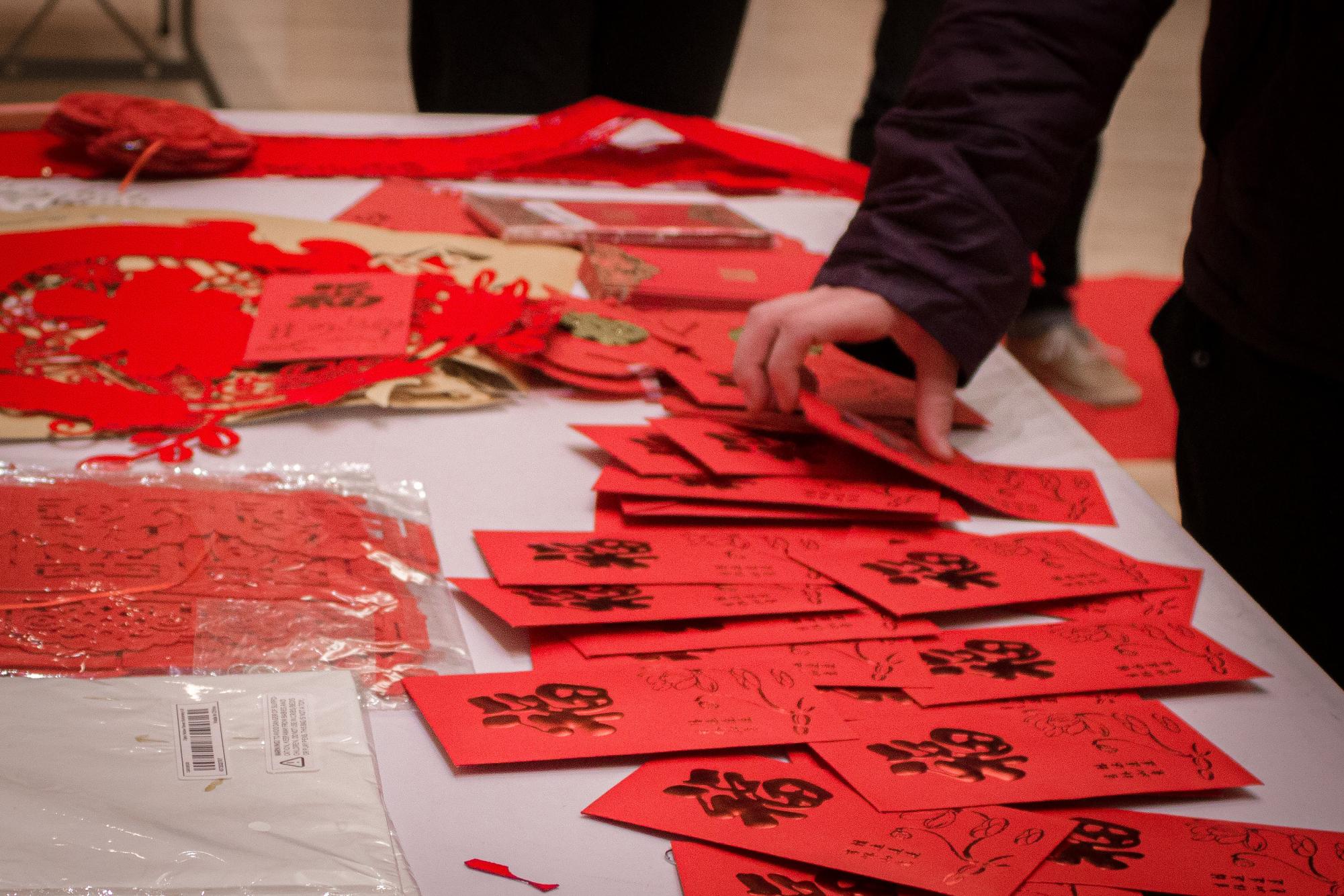
At the start of every new year, China@Whitman hosts a large celebration in honor of Lunar New Year. On Feb. 10, the Reid Ballroom was coated in decorations and tables were heavily laid with snacks, activities and games to ring in the new year.
Lucas Zheng is a member of the China@Whitman club and helped organize the event. He described the variety of activities planned for the evening, including traditional games, foods and gifts. A large photo booth also invited attendees to dress up in costume and take photos of themselves and their friends against a beautiful backdrop.
David Wang, Vice President of the China@Whitman club, noted that the photo booth was the most important activity to him since it allowed attendees to truly be a part of the culture they were celebrating.
“The photo shoot takes the traditional costume and [encourages] people to want to take them, try them on, make some memories with them. Instead of just knowing it as a culture, they can actually be part of it if they want. I think that’s the kind of idea we want to bring to campus,” Wang said.
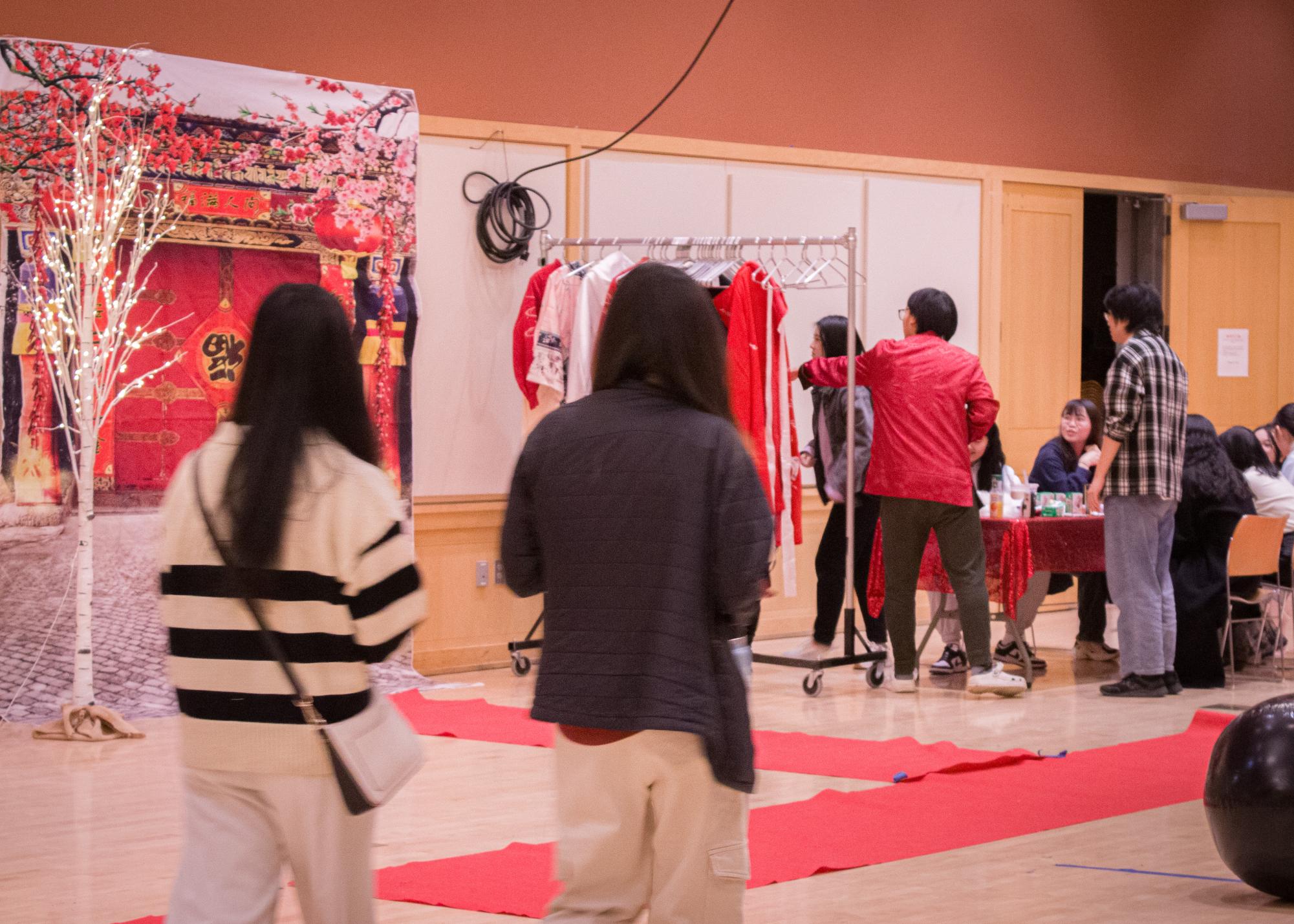
“We’re doing games, snacks and we have cute gifts for them. We have board games like Mahjong and those kinds of games, we also have some music to play,” Zheng said.
As the night got started, groups gathered around the board game tables, snacks and drinks in hand. As organizers filled boxes with surprise gifts, more and more people filled the space.
Riley Cooper attended the event after seeing a listserv email about the celebration. She expressed the importance of learning about different types of holidays, as well as her familiarity with parts of the event.
“I’m familiar with the red envelope tradition, so I was super excited about that. And I was excited to try the new snacks as well,” Cooper said.
Wang emphasized the importance of cultural traditions: by bringing others into the celebration of holidays, you can share some of those joys and traditions with those outside your culture.
“It helps people to understand other cultures and other cultures’ festivals, why they’re important to the people and bring the joy to other people as well, not just to us,” Wang said.
For Lunar New Year, sharing culture revolved around fun, games, food and gifts.
“I hope people enjoy the event, and come back next year, but more like they can get experiences about Asian culture and how we celebrate Lunar traditional New Year,” Zheng said.
For Junior M Hu, getting to eat food from their childhood was the best part of the night. The nostalgic taste of familiar snacks reminded them of home, and helped bring a bit of their childhood memories to the current moment.
“Cultural acceptance, feeling like I can get a taste of my own culture [is what I feel]. Do you know when you miss home and you see a photo of your house? It’s a bit like that, seeing cool food I ate when I was a child, I’m like, yes, I am a part of the people here, I have found my people,” Hu said.
Although there was no shortage of activities to participate in, board games were definitely one of the most popular.
“Traditional games, board games will be a good time for people to sit down, have some fun, chat and play some games,” Ching-Hsiung Wang said. “That’s one of the things we want to highlight in this event … a sense of calm, joy and fun. Also [the opportunity] to make some memories with their friends, enjoy some good snacks, all of that stuff.”
Through the annual Lunar New Year celebration, organizers hoped to bring a piece of their culture to Whitman’s campus, and include all attendees in the festivities. Surprise gifts, nostalgic snacks and fun costumes allowed everyone who walked in to be a part of the annual festivities.
Zheng sees the event as a way to establish that Asian cultures are not a monolith.
“We’re promoting cultural understanding, cross-culture inclusiveness at Whitman College and welcoming more domestic students into our Asian culture. Lunar New Year is not just in China — it’s [throughout] Asia … so we’re also welcoming those students, even though it is held by our China@Whitman club, and broadening our scale to welcome people and gain more knowledge about our culture,” Zheng said.


